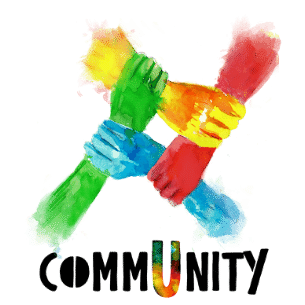The Social Change Ecosystem
Purpose of the activity: “The Social Change Ecosystem Map is a framework that can help individuals, networks, and organizations align with social change values, individual roles, and the broader ecosystem.” – Deepa Iyer
The Social Change Ecosystem workshop is based on the Social Change Ecosystem and social roles created by attorney, author and social activist Deepa Iyer. Deepa Iyer identified ten different social change roles: the visionary (1), the builder (2), the experimenter (3), the storyteller (4), the healer (5), the caregiver (6), the guide (7), the frontline responders (8), the disruptor (9), and the weaver (10).
The participants are asked to identify the main goals, values, and missions they serve as an organization, institute, or network. After identifying these main pillars of their network and the goals they want to work on a big poster, they are asked to reflect on what social roles they fulfil within this network and towards these common goals and values. One person can play multiple social roles. Through a series of thought-provoking questions and statements, the participants identify their roles and write their names on the post-its and are asked to stick their names on the roles that apply to them on the poster (Online applications and tools such as Mentimeter, Padlet and Jamboard can also be used for the activity. ).
This is an effective way to see people who have the same goals and values but play various social roles in any social change network. It also reveals potential gaps and missing roles within a network of social change that can make it difficult to achieve the identified goals and/or effectively implement agreed-upon principles to develop sustainable social change.
With this knowledge, the individual participants and the group can reflect upon their personal roles, the dynamic of the network, how each participant can develop to further the group goals, take a step back to ensure long-term sustainability if people are taking too many roles, or depending on someone’s wish to show another side of themselves and their personal and professional skills, try out other roles of social change. Acknowledging difficulties of creating impactful and long-term social change and recognizing that it is not necessarily anyone’s “fault” but rather a gap or deficiency within a group dynamic or network, identifying and defining this gap can reduce pressure on a group and help people address any gap or disparity more effectively and efficiently.
Interested in conducting this workshop in your organization?
Here is the link to Deepa Iyer’s website http://deepaiyer.com and the Ecosystem Guide https://buildingmovement.org/wp-content/uploads/2020/06/Final-Mapping-Ecosystem-Guide-CC-BY-NC-SA-4.0-Handles.pdf
She deserves all the credit!
